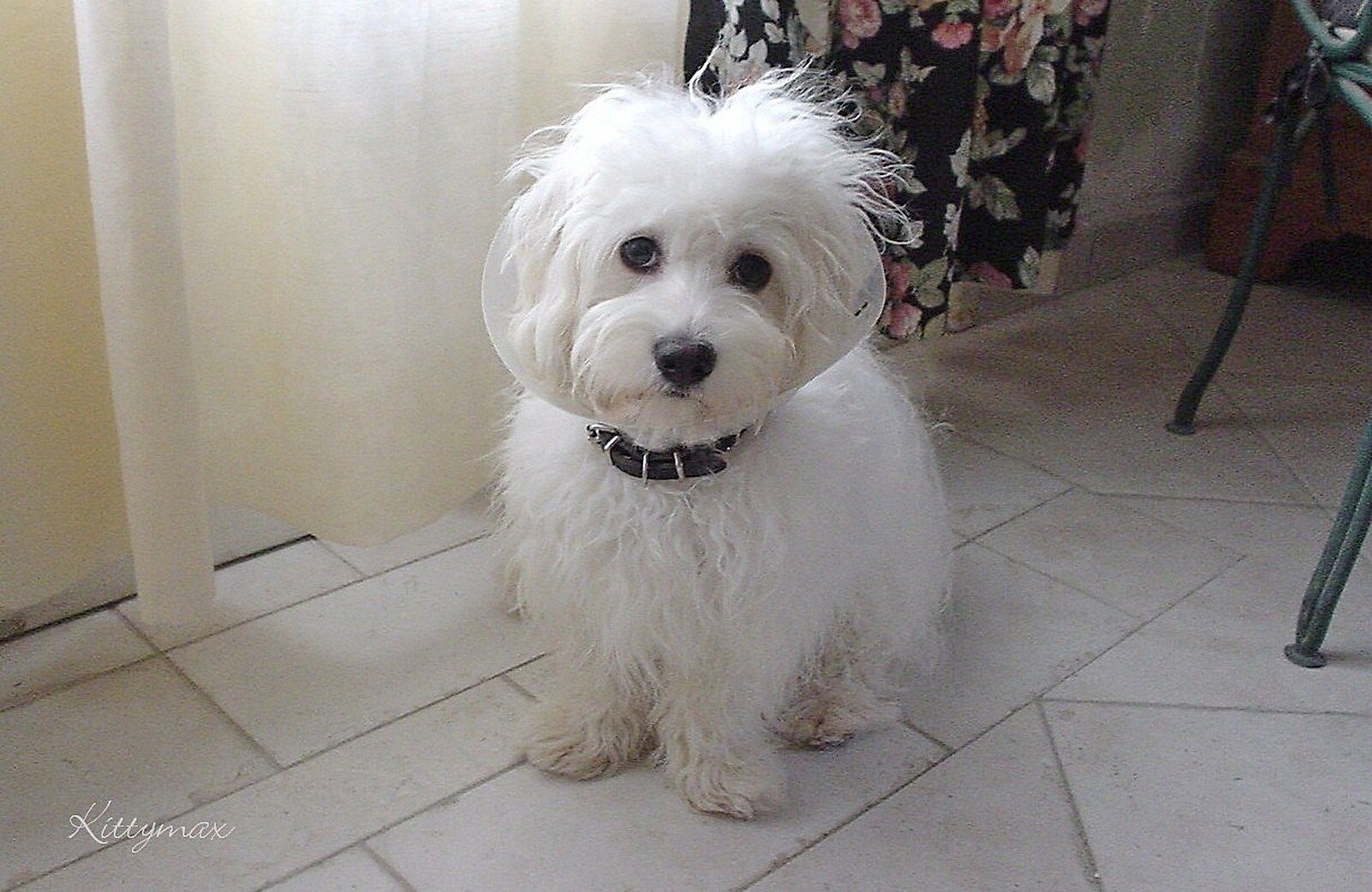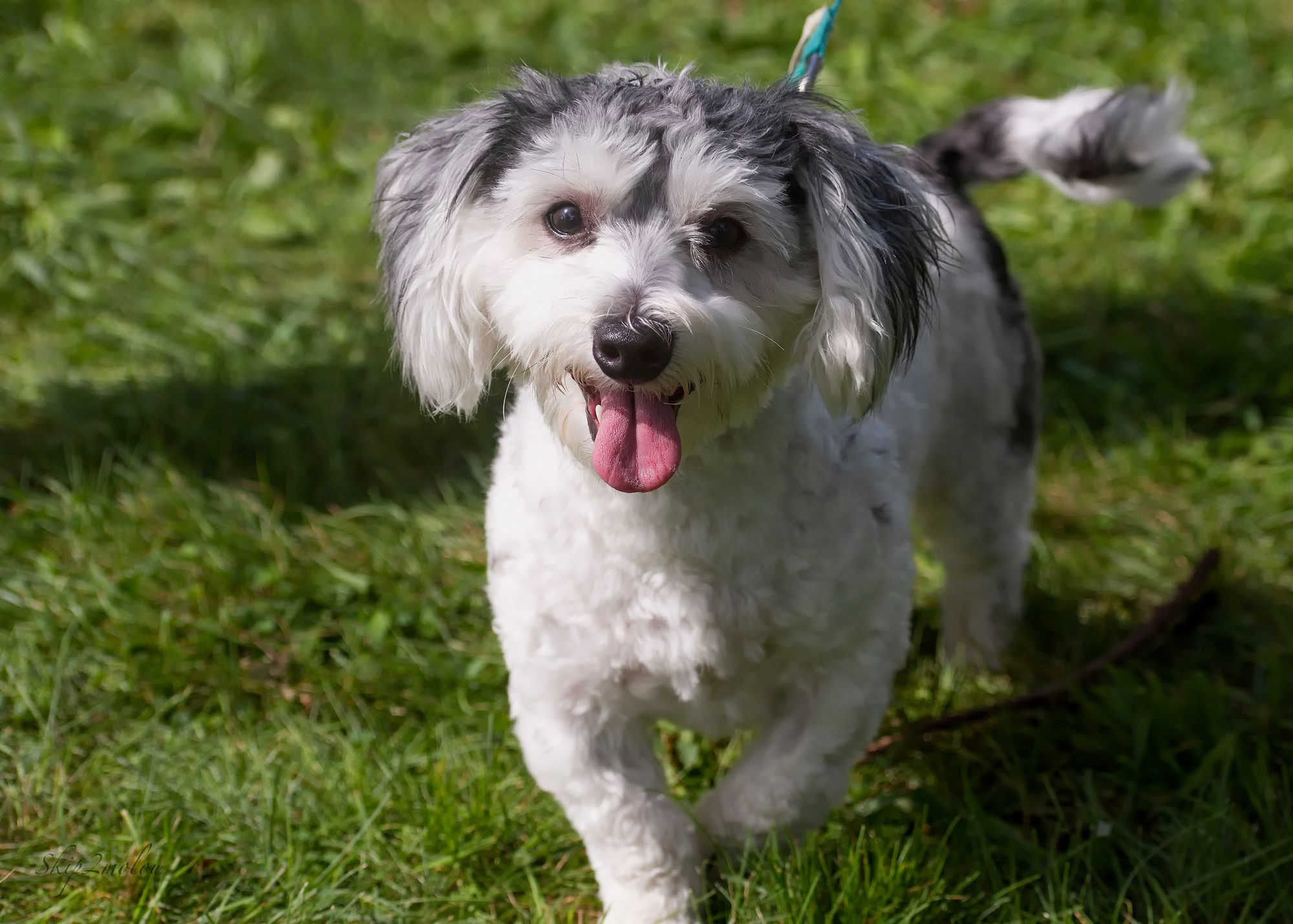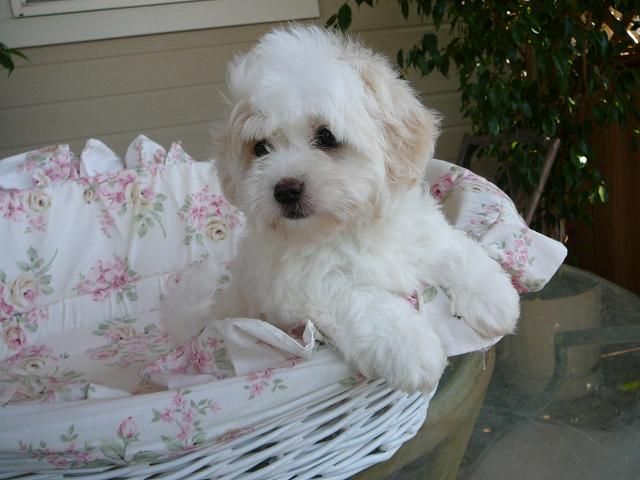Coton de Tulear, a small and charming dog breed, is beloved by many for its adorable appearance and friendly demeanor. Originating from Madagascar, this breed has gained popularity around the world for its cheerful personality and loyal companionship. In this article, we will explore the history, characteristics, care, and training of the Coton de Tulear, shedding light on why it makes a perfect addition to any family.

The Coton de Tulear has a rich history that dates back several centuries. It is believed to have originated in Madagascar, specifically in the port city of Tulear. The breed's name, "Coton de Tulear," refers to its cotton-like coat and its place of origin.
Appearance and Temperament
Their physical characteristics and temperament make them an ideal choice for those seeking a delightful companion.
1. Physical Appearance
Coton de Tulear dogs have a sturdy build and well-proportioned body. They typically stand between 9 to 12 inches (23 to 30 cm) at the shoulder and weigh around 9 to 13 pounds (4 to 6 kg). Despite their small size, they exude an air of elegance and grace.
One of the breed's most distinctive features is their soft, cotton-like coat. It is long, fluffy, and composed of hair rather than fur, which contributes to their hypoallergenic qualities. The coat is predominantly white, although some may have slight shades of champagne or light tan markings on their ears or body.
Their beautiful coat requires regular grooming to prevent matting and keep it in pristine condition. Coton de Tulear dogs have expressive, round eyes that radiate warmth and intelligence. Their eyes are dark and harmonize with their coat color. Additionally, they have black noses and pendant-shaped ears that hang close to their face, enhancing their adorable appearance.
2. Temperament and Personality
Coton de Tulear dogs are renowned for their friendly, affectionate, and loving nature. They thrive on human companionship and enjoy being an integral part of their family's life. Their temperament makes them excellent choices for households with children or other pets.
These dogs are known to be sociable and gentle, always eager to please their owners. They form strong bonds with their family members and often exhibit a sense of loyalty and devotion. Whether it's cuddling on the couch, joining in on family activities, or simply offering a comforting presence, Coton de Tulear dogs excel at being true companions.
Their cheerful and playful disposition adds to their overall charm. They have a knack for bringing smiles and laughter to those around them. Despite their small size, they possess an abundance of energy and enthusiasm, enjoying playtime and interactive activities with their loved ones.
Coton de Tulear dogs are generally good with strangers, displaying a welcoming and amicable demeanor. Their friendly nature makes them poor candidates for guard or watchdog roles, as they are more likely to greet strangers with wagging tails and wagging hearts.
In summary, the Coton de Tulear's appearance and temperament perfectly align to create an irresistible package. Their physical beauty, coupled with their loving and sociable nature, makes them a beloved breed among dog enthusiasts and families seeking a loyal and affectionate companion.
Caring for a Coton de Tulear
Caring for a Coton de Tulear involves providing them with proper nutrition, grooming their unique coat, ensuring regular exercise, and attending to their overall health and well-being. Here are some essential aspects to consider when taking care of your Coton de Tulear:

1. Nutrition and Feeding
Maintaining a balanced diet is crucial for the health and vitality of your Coton de Tulear. Choose high-quality dog foods that are appropriate for their age, size, and activity level. Opt for formulas that contain wholesome ingredients and are free from fillers and artificial additives.
Feeding schedules can vary depending on your dog's age and individual needs. Puppies may require more frequent meals, while adult Coton de Tulears generally do well with two meals per day. Monitor their weight and adjust portion sizes accordingly to prevent obesity.
Ensure your dog has access to fresh water at all times, and consider consulting your veterinarian for dietary recommendations specific to your Coton de Tulear's needs.

2. Grooming
The Coton de Tulear's beautiful coat requires regular grooming to keep it clean, mat-free, and looking its best. Here are some grooming tips for your Coton de Tulear:
Brushing: Use a soft-bristle brush or a comb to brush your Coton de Tulear's coat daily. This helps prevent tangles and mats and removes loose hair.
Bathing: Bathe your Coton de Tulear every three to four weeks or as needed. Use a mild dog shampoo and conditioner specifically formulated for their coat type.
Coat Maintenance: Regularly check for any mats, tangles, or debris in their coat, paying particular attention to areas such as behind the ears, under the legs, and around the tail. Use a detangling spray or a de-matting tool if necessary.
Ear Cleaning: Clean your dog's ears regularly to prevent wax buildup and potential infections. Use a gentle ear-cleaning solution and a cotton ball, taking care not to insert anything into the ear canal.
Dental Care: Maintain good dental hygiene by regularly brushing your Coton de Tulear's teeth with a dog-friendly toothbrush and toothpaste. This helps prevent dental issues such as tartar buildup and gum disease.
Nail Trimming: Trim your dog's nails regularly to keep them at a comfortable length. If you're not familiar with nail trimming, consult a professional groomer or your veterinarian for guidance.
3. Exercise and Mental Stimulation
Coton de Tulears are active dogs despite their small size. They benefit from daily exercise and mental stimulation to keep them physically fit and mentally engaged. Take them for walks, play games, and provide them with interactive and puzzle toys that challenge their problem-solving skills. Engaging in activities together strengthens the bond between you and your furry companion.
4. Healthcare and Regular Check-ups
To ensure your Coton de Tulear's well-being, schedule regular veterinary check-ups. Your veterinarian will perform routine examinations, administer vaccinations, and address any health concerns. Follow their recommendations for parasite prevention, such as flea and tick control, as well as heartworm prevention.
Be attentive to any signs of discomfort or changes in behavior, as early detection of potential health issues can lead to prompt treatment and better outcomes.
Caring for a Coton de Tulear involves providing them with proper nutrition, regular grooming, exercise, and regular healthcare. By meeting their specific needs and showering them with love and attention, you'll have a happy and healthy Coton de Tulear companion by your side for years to come.
Training and Socialization
1. Puppy Training
Early socialization and training are vital for a Coton de Tulear puppy. Introduce them to various people, animals, and environments to help them develop into well-rounded adults. Basic obedience training, including commands like sit, stay, and come, should be started early on to establish good behavior patterns.
2. Obedience Training
Cotons are intelligent and eager to please, making them relatively easy to train. Positive reinforcement techniques, such as reward-based training and praise, work well with this breed. Keep training sessions short, fun, and engaging to maintain their interest and motivation.
3. Socializing Your Coton de Tulear
Proper socialization is crucial to ensure that your Coton de Tulear becomes a well-behaved and confident adult dog. Expose them to various situations, people, and animals, gradually increasing the level of difficulty. Enrolling in puppy socialization classes or organizing playdates can also contribute to their social development.

Health Concerns
1. Common Health Issues
Coton de Tulears are generally healthy dogs, but like all breeds, they can be prone to certain health conditions. Some of the common health issues in this breed include luxating patella, progressive retinal atrophy (PRA), and hip dysplasia. Regular veterinary check-ups and a healthy lifestyle can help minimize the risk of these issues.
2. Regular Veterinary Care
Routine veterinary care is essential for the overall well-being of your Coton de Tulear. Regular check-ups, vaccinations, parasite prevention, and dental care should be part of their healthcare regimen. Additionally, keeping their ears clean and their nails trimmed can prevent potential health problems.
Choosing a Coton de Tulear
When considering adding a Coton de Tulear to your family, it is essential to make an informed decision. Selecting the right dog breed and individual puppy or adult dog requires careful consideration and understanding of your lifestyle and the specific needs of the breed. Here are some factors to keep in mind when choosing a Coton de Tulear:
1. Lifestyle Compatibility
Coton de Tulear dogs are well-suited to various types of households, but it's crucial to assess whether their characteristics align with your lifestyle. Consider factors such as your living arrangements, availability of outdoor space, and daily schedule. While they adapt well to apartment living, they still require regular exercise and mental stimulation. If you have a busy lifestyle that involves long hours away from home, it's essential to ensure you can provide them with the attention and care they need.
2. Size and Exercise Needs
As a small to medium-sized breed, Coton de Tulear dogs have moderate exercise requirements. Daily walks, interactive play sessions, and engaging activities are necessary to keep them physically and mentally stimulated. While they don't require extensive exercise like some high-energy breeds, neglecting their exercise needs can lead to restlessness or behavioral issues.
3. Grooming Commitment
Coton de Tulear dogs have a long, fluffy coat that requires regular grooming to maintain their appearance and prevent matting. If you're considering this breed, be prepared to invest time and effort into their grooming needs. Daily brushing, occasional baths, and routine care for their ears, teeth, and nails are essential to keep their coat healthy and tangle-free. If you're not willing to commit to regular grooming or prefer a low-maintenance coat, a different breed might be more suitable.
4. Allergies and Sensitivities
Coton de Tulear dogs are often recommended for individuals with allergies, as they produce fewer allergens compared to some other breeds. However, it's important to note that individual sensitivities can vary. If you or someone in your household has allergies, spend time with Coton de Tulear dogs to ensure compatibility before bringing one into your home.
5. Responsible Breeding and Adoption
When acquiring a Coton de Tulear, it's crucial to choose a reputable breeder or consider adoption from a rescue organization. Responsible breeders prioritize the health and well-being of their dogs, conducting appropriate health screenings and providing necessary care. They should be knowledgeable about the breed, willing to answer your questions and provide documentation for health clearances. Adoption is another option that can provide a loving home to a Coton de Tulear in need.
6. Socialization and Temperament
Coton de Tulear puppies require early socialization to develop into well-rounded, confident adults. A responsible breeder will expose the puppies to various stimuli, experiences, and different people to ensure they grow up to be sociable and adaptable dogs. Inquire about the socialization practices the breeder follows and observe the puppy's behavior during your visit.

By considering these factors and making an informed decision, you can ensure that a Coton de Tulear is the right fit for your family and provide them with a loving and nurturing environment.
FAQs (Frequently Asked Questions)
Q: Are Coton de Tulears hypoallergenic?
A: Yes, Coton de Tulears are considered hypoallergenic, making them suitable for individuals with allergies.
Q: Do Cotons get along well with other pets?
A: Yes, Cotons generally get along well with other pets, including dogs and cats, especially if they are properly socialized from a young age.
Q: How much exercise does a Coton de Tulear need?
A: Cotons have moderate exercise needs. Daily walks, playtime, and mental stimulation activities are usually sufficient to keep them happy and healthy.
Q: Are Cotons good with children?
A: Yes, Cotons are known for their gentle and friendly nature, which often makes them great companions for children. However, as with any dog, supervision and teaching children how to interact with dogs safely are significant.
Q: How long do Cotons live?
A: On average, Coton de Tulears live between 14 to 16 years. With proper care and a healthy lifestyle, some can live even longer.
Q: Are Cotons difficult to groom?
A: While Cotons have a long and fluffy coat, they are generally not difficult to groom. Regular brushing and occasional professional grooming sessions are usually sufficient to keep their coat in good condition.
Final Thoughts
In conclusion, the Coton de Tulear is a delightful companion dog known for its adorable appearance, friendly nature, and loving temperament. Whether you are looking for a loyal family pet or a devoted companion, this breed has a lot to offer. With proper care, training, and socialization, a Coton de Tulear can bring happiness and endless joy to your life.




